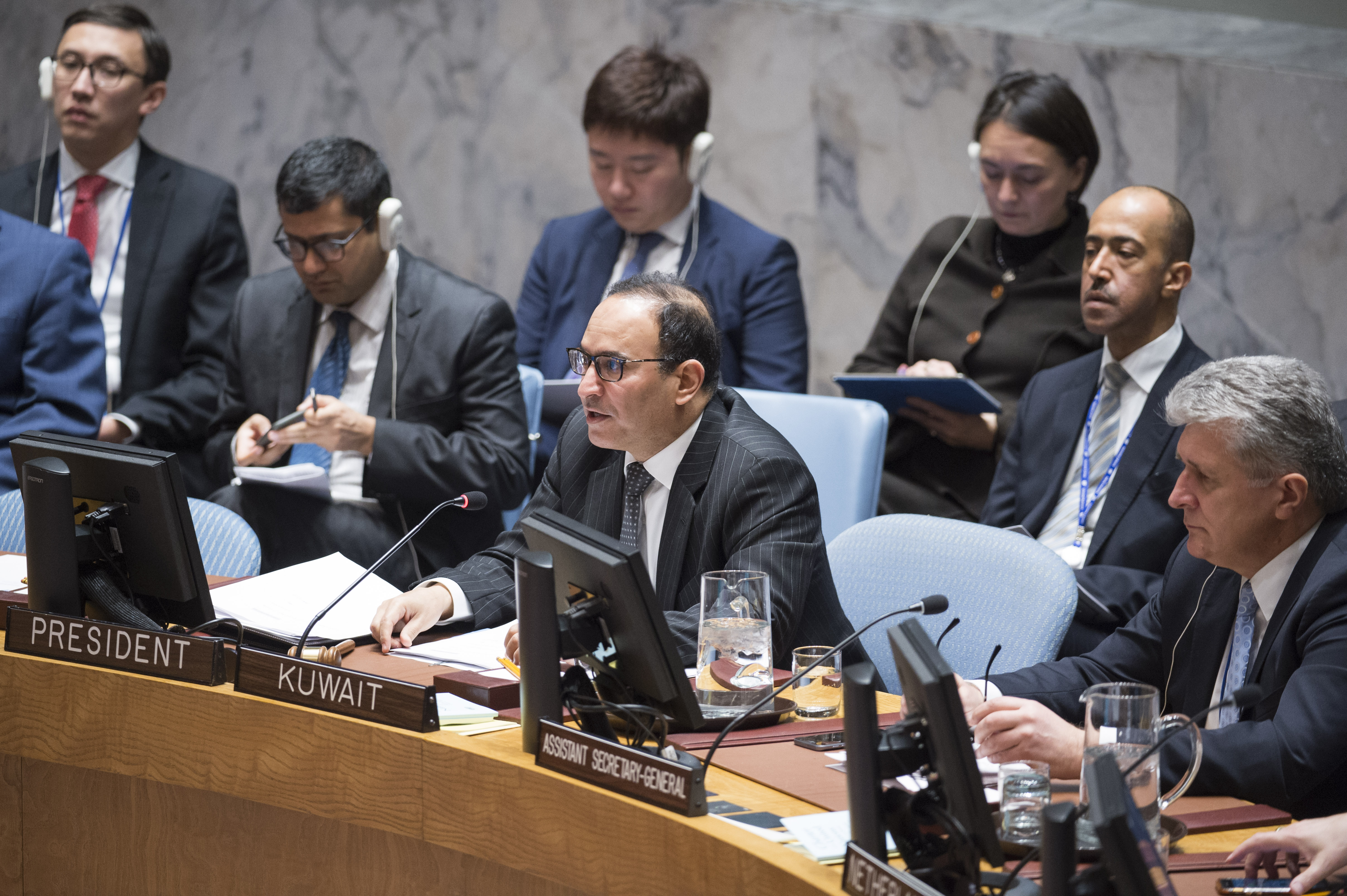LOC11:21
08:21 GMT
 Kuwait's Permanent Representative to the United Nations Ambassador Mansour Al-Otaibi
Kuwait's Permanent Representative to the United Nations Ambassador Mansour Al-Otaibi
NEW YORK, Feb 14 (KUNA) -- The State of Kuwait has stressed the need to protect critical infrastructure from terrorist attacks, as they constitute easy and attractive targets for terrorist groups.
"Threats to international peace and security are caused by terrorist acts", Kuwait's Permanent Representative to the United Nations Ambassador Mansour Al-Otaibi said, adding that "the importance of vital infrastructure lies in the fact that it is related to our daily lives, including many civilian facilities, telecommunications, emergency services, banking and finance."
"Each State had the responsibility to determine the concept of critical infrastructure and the best means to protect it", he said.
"We in Kuwait are among the countries that have suffered the phenomenon of targeting vital infrastructure. Terrorists targeted a religious facility in 2015, which left scores of people dead and injured," he added.
He pointed out that the State of Kuwait has enacted a number of laws to prevent any terrorist activities against the critical infrastructure, which are consistent with relevant Security Council resolutions, including the law, in combating cyber-crimes.
He pointed out that the law punishes anyone who has established a website for a terrorist organization or a terrorist person or published any information on the Internet to facilitate contacts with one of its leaders or members, to promote their ideas or to finance them.
He expressed Kuwait's keenness on supporting the Counter-Terrorism Committee Executive Directorate (CTED), urging member states to work together to facilitate technical assistance, and raising awareness in protecting vital infrastructure from terrorist attacks.
He encouraged States to cooperate with the INTERPOL and the United Nations Office on Drugs and Crime (UNODC) in combating terrorism.
Moreover, Al-Otaibi stressed the importance of implementing Resolution 2322 on international cooperation in combating terrorism and other relevant resolutions of the Council, pointing out that the State of Kuwait hosted Anti-IS Coalition ministerial meeting with the participation of 70 countries and four international organizations to develop strategies and plans to confront terrorism.
He said the meeting is the first since the defeat of (IS) in Iraq, adding that it is part of a series of international conferences that took place in order to build a formal coalition to destroy the IS, which had taken over large portions of Syria and Iraq.
Al-Otaibi reiterated Kuwait's firm stand by rejecting all forms of terrorism and extremism regardless of their causes, motives and sources. (end)
asf.haq